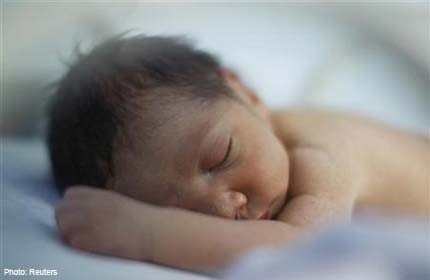Early help may improve preemies' behavior later


Giving parents of newborn premature babies some help in better understanding and interacting with their infants may make a difference in their children's behavior by the time they are ready for school, according to a Norwegian study.
Children born prematurely tend to have higher rates of behavioral problems, such as attention-deficit hyperactivity disorder (ADHD), than peers born full term.
For the new study, reported in Pediatrics, researchers in Norway tested a program that gave parents of preemies help right away, starting in the hospital.
"Preterm infants are often more fussy, give less eye contact and are harder to understand for parents," said Marianne Nordhov of the University Hospital of North Norway in Tromso, the lead researcher.
"They display signs of stress in a subtle way, such as color changes, 'jittery' movements and increased respiration rate."
She and her colleagues randomly assigned parents of 146 preemies, born weighing under 2 kg (4 pounds, 6 ounces), to either take part in the program or stick with standard care alone. They also recruited parents of 75 full-term infants for comparison.
In addition to help while the babies were still in the hospital, the program included four home visits from a nurse over three months. The nurses gave them training in things such as "reading" cues from their infant and interacting with the baby through play.
At the age of five, Nordhov's team found, children whose parents had been in the program were showing fewer behavior problems such as inattention, aggression or withdrawn behavior.
Based on reports from the parents, 29 per cent of those children scored in the "borderline" range on the behavior-problem scale. That compared with 48 per cent of premature children whose parents had not been in the program.
Scores in the borderline range point to an increased risk for behavior problems such as ADHD.
"Our study has shown that only 12 hours of parental education improves their knowledge and confidence, which in turn improve the interaction with their infant in a beneficial way," Nordhov said.
"It is important that nurses and doctors spend time with parents and teach them how to better interact and understand this 'difficult' task of language."
A U.S. child psychologist not involved with the study said the key point of the research was that the program focused on parenting skills from the beginning of an infant's life, rather than from several years later as is common in the United States.
"Starting parent training early would be a wonderful thing," said Lori Evans, at the New York University Child Study Center.
With children's behavioral problems, she added, the earlier they are tackled, the better.